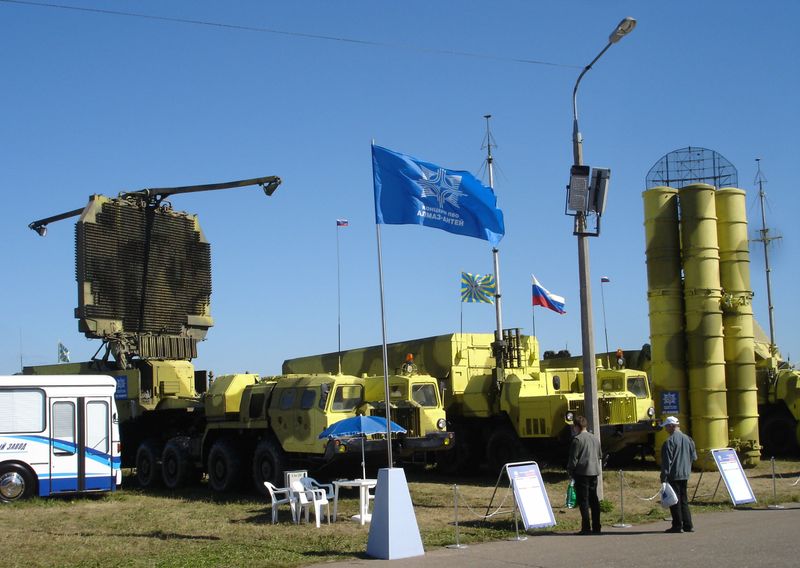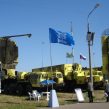
Russian Rulers Cannot Rely On The Military During a Crisis
Publication: Eurasia Daily Monitor Volume: 8 Issue: 38
By:

Popular uprisings rocking the Middle East are a cause for concern in Moscow, in particular, as the unrest may disrupt arms trade worth tens of billions of dollars. In 2010, Russia agreed to sell the Libyan regime of Moammar Gaddafi more than $2 billion worth of military jets, tanks, S-300 anti-aircraft missiles and other defense equipment, though final contracts have not been signed. These sales and contracts to build a railroad and develop oil and gas deposits in Libya are today in jeopardy as Gaddafi’s rule is collapsing. Russia sells billions of rubles of arms to Algeria, Syria and Jordan and is negotiating major deals with Libya, Saudi Arabia, Egypt, Yemen, Morocco and others. In recent years Moscow had written off tens of billions of dollars in old arms trade debts incurred during the Cold War by Libya, Algeria and Syria on the understanding that these nations would procure equal or larger amounts of new arms in response. Now the future of all these plans is unclear (Interfax, February 21).
The Middle Eastern unrest has brought a sharp rise in oil prices that is bringing Moscow much needed cash which may well compensate for the possible loss of arms contracts, but this windfall does not silence fears that the fall of Arab dictatorships may directly overspill into Russia. Speaking this week to a session of Russia’s national antiterrorist committee, President Dmitry Medvedev, expressed fear that “the situation in the Middle East may lead to the disintegration of major nations into small bits, the rise to power of fanatics and the spread of extremism for decades to come.” Medvedev added, “They were preparing such a scenario for us before and will now try even more to make it happen” (www.kremlin.ru, February, 14).
From the official Russian transcript it is not fully clear, who “they” referred to –accused of working to dismantle Russia: the Islamist extremists or some outside powers. In Moscow today it is popular to imply that Washington and the West are behind all pro-democracy popular movements in the Muslim world, as before the West was accused of financing and instigating so-called “Color Revolutions” in Georgia, Ukraine and Kyrgyzstan. In any case the loyalty and readiness of the armed forces, the police and security services seems to be an essential prerequisite for the stability and physical survival of the present corrupt Russian autocracy.
Russia’s rulers are actively placating the military, police and security forces. On February 23, the Fatherland Defenders Day (former Red Army Day) Prime Minister, Vladimir Putin, promised to spend an additional 300 billion Rubles ($10 billion) in 2011-2013 to finance and construct new housing for officers and military veterans. Putin confirmed a decision to drastically increase pay for servicemen beginning in January 2012 together with a 1.5 percent hike in military veteran pensions (Interfax, February 23). All other militarized forces will receive a similar increase (EDM, February 3). This pay increase includes the sprawling Russian Interior Ministry (MVD) police force of 1.4 million that exceeds the defense ministry forces of 1 million (RIA Novosti, December 24, 2010). In accordance with announced reform plans the MVD manpower will decrease by 20 percent by 2012, when the massive pay increase comes into force, but it will still be larger than the defense ministry forces. From 2012 the entire MVD budget will come from federal funds, while currently 40 percent is provided by the regions (RIA Novosti, February 22).
A senior defense ministry military official told Jamestown: “Other silovye strukturi (power structures) budgeted with us and demanded the same pay increase and this requires a great deal of additional funding.” According to Finance Minister, Alexei Kudrin, “the modernization of the military, the defense industry and the rise in military pay will require an additional 1.5 percent of GDP,” from the present level of defense spending close to 3 percent (RIA Novosti, February 18). Together with increased expenditure on the security services and the MVD, Russia’s overall national security spending may reach 6 to 8 percent of GDP. Kudrin does not know at present where to find the money without drastically increasing the deficit that is at present 4 percent of GDP.
The seemingly uncontrollable rise of defense and national security spending is putting the Russian economy on a war footing impeding any attempts to promote modernization and sustainable growth, but in itself it does not guarantee military or security effectiveness or loyalty from the armed forces. Discipline in military units is collapsing, while crimes committed by conscript soldiers in barracks drastically increased in 2010 according to military prosecutors (Interfax, February 18). The Russian military does not have any capable sergeants, while attempts to create a non-commissioned officer (NCO) corps have failed, which seems to be the main reason for the present collapse of army unit discipline. According to Colonel (retired) Vitaliy Shlykov, who is an adviser on military reform to the defense ministry: “The Russian military has conscript soldiers that serve one year and a handful of contract sergeants. The mass of present sergeants are one-year serving conscripts and it is impossible to advance and train an effective NCO during one year” (RIA Novosti, February 17).
This week a senior defense ministry general gave a background briefing in Moscow to selected editors, including Jamestown. It was stressed that the defense ministry and General Staff of the armed forces are still fully on track to form a modern combat ready 1 million strong military with 150,000 officers, but serious problems have arisen with providing modern weapons and sufficient manpower. According to the senior general, the present structure of the armed forces, formed by the end of 2010, was designed to function adequately with 150,000 officers, 425,000 contract solders and sergeants and 425,000 conscripts. Today there are some 550,000 conscripts and only 180,000 contract soldiers and sergeants serving and they are “mostly good-for-nothing” primarily because there is no organized system to recruit, promote and train effective contract specialists and sergeants. The general announced there are plans to create a special recruitment system for contract soldiers and sergeants, but declined to say, when this overdue reform may begin.
While oil prices are high, Russia’s leaders try to resolve their troubles by throwing money at problems instead of promoting coherent structural changes. If and when Russia’s lopsided authoritarian regime begins to collapse like Gaddafi’s, world oil and gas prices will surely skyrocket, but Moscow will be in no position to benefit.




